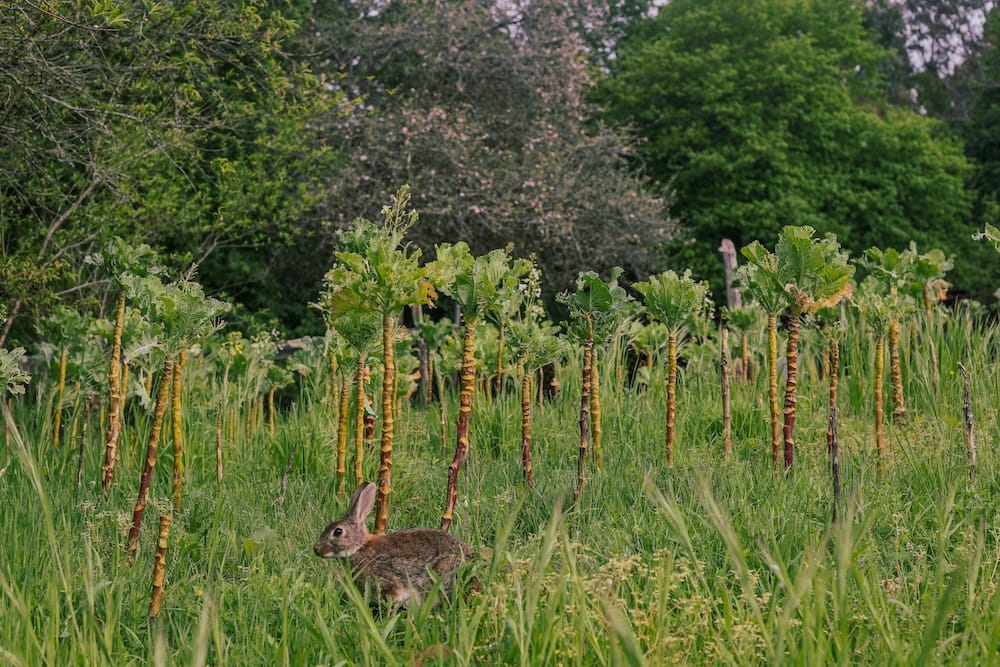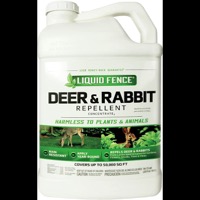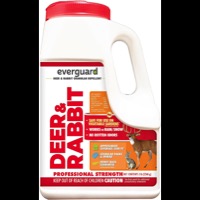10 Rabbit-Resistant Plants to Protect Your Garden

By Craig Basset, Expert Reviewer for Repellent Guide
published: Aug 25, 2023 | updated: Aug 25, 2023
When Peter Rabbit nibbles his way through Mr. McGregor's garden in Beatrix Potter's beloved children's book, it's charming. However, when rabbits make a meal of your carefully cultivated garden, the story quickly loses its appeal. Fortunately, you can create a plot twist. One method to deter these furry invaders is to landscape with plants that rabbits find unappealing. In this article, we present ten rabbit-resistant plants that can add beauty to your garden while helping keep it safe from these nibbling nuisances.
Understanding Rabbit Preferences
Before we dive into the plant list, let's understand what makes a plant unattractive to rabbits. Rabbits typically favor plants that are high in nutrients, particularly nitrogen, and offer tender, succulent growths like leafy greens, fruits, vegetables, and young, woody plants. However, they generally avoid plants that are poisonous, have a strong scent, or prickly textures. Now, let's look at some plants that rabbits tend to leave alone.
1. Lavender (Lavandula)
Lavender is well-known for its soothing, aromatic fragrance that humans love but rabbits dislike. It's a hardy plant that prefers full sun and well-drained soil. Its purple-blue flowers and silver-gray foliage add a pop of color and a Mediterranean touch to your garden. Plant them along paths where you can enjoy the scent and where their strong fragrance can help deter rabbits.
2. Salvia (Salvia)
Rabbits typically steer clear of Salvia due to its aromatic leaves. These plants are also drought-tolerant, making them a practical choice for drier climates or low-maintenance gardens. Salvia offers spikes of bright, nectar-rich flowers that attract pollinators but deter rabbits. These plants are excellent for mixed borders or ornamental kitchen gardens.
3. Russian Sage (Perovskia atriplicifolia)
Russian sage with its silvery leaves and delicate lavender-blue flowers is a stunning addition to any garden. Its strong scent serves as a rabbit deterrent. This plant thrives in full sun and is drought-resistant, making it a good choice for rock gardens, borders, or any sunny, well-drained spot.
4. Spirea (Spiraea)
Spirea is a shrub that's typically ignored by rabbits. Its vibrant flowers come in various shades, including pink, red, yellow, and white. Plant them in groups or use them as hedges to create a colorful border that rabbits are less likely to penetrate.
5. Yarrow (Achillea millefolium)
Rabbits tend to avoid Yarrow due to its feathery, fern-like foliage. It's a drought-tolerant plant with clusters of brightly colored flowers. Yarrow can thrive in various garden settings, from borders to wildflower meadows, and its strong, resilient nature helps keep rabbits at bay.
6. Catmint (Nepeta)
Despite its name, Catmint is not the same as Catnip, although it's similarly attractive to cats and repelling to rabbits. Its soft, aromatic foliage and clusters of purple flowers can add a lovely splash of color to your garden. It's an excellent ground cover and also works well in borders and rock gardens.
7. Boxwood (Buxus)
Boxwood is an evergreen shrub that provides year-round protection against rabbits. Its dense growth and unpalatable leaves make it an excellent choice for a rabbit-resistant hedge or border
. With careful pruning, Boxwood can also be shaped into topiaries to create a focal point in the garden.
8. Foxglove (Digitalis)
The tall, bell-shaped flowers of Foxgloves are a spectacle in any garden, but they contain a toxin that deters rabbits. These plants prefer partial shade and well-drained soil. They're excellent for adding height to your garden design.
9. Daffodils (Narcissus)
Daffodils are one of the most reliable spring bloomers and a garden favorite. They're also toxic to rabbits, making them an excellent choice for springtime rabbit deterrence. Plant them in groups for a stunning early-spring display.
10. Geraniums (Pelargonium)
Geraniums, with their brightly colored blooms, can deter rabbits. They're a versatile plant that works well in garden beds, containers, or hanging baskets. Some varieties also have scented leaves, offering an additional level of rabbit deterrence.
Conclusion
No plant is entirely rabbit-proof, as local rabbit populations may have adapted to eat certain plants typically considered resistant. That's why it's important to pair your planting strategy with other protective measures such as fences, decoys, and commercially available repellents. It may take some experimentation, but with patience, you can create a garden that's both visually appealing to you and unappetizing to rabbits. Remember, a successful garden is a balanced ecosystem where all creatures, including rabbits, have their place.
Happy gardening!
-
Ultrasound
-
Concentrate
-
Granules




